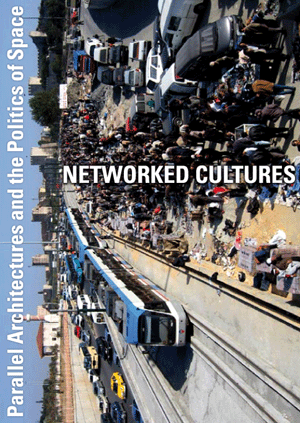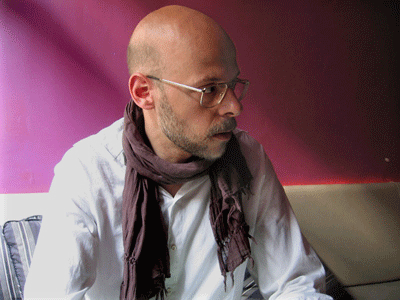_loginregistrieren_database_5 Factories - Worker Control in Venezuela Dario Azzellini & Oliver Ressler _ALMOSTREAL ECF _AnArchitektur Jesko Fezer _Arizona Road Azra Aksamija _Balkan Konsulat rotor _Bata-ville: We are not afraid of the future Nina Pope + Karen Guthrie / www.somewhere.org.uk _Black Benz Race krcf in collaboration with Felix Stalder, Arben Gecaj, Faton Topalli and Osman Osmani _Black Sea Files Ursula Biemann _Camp La Jolla Military ParkOwen Mundy _CHANGE REALITY: Renaming the Streets of Zagreb REINIGUNGSGESELLSCHAFT _Conceptual Paradise. There is a place for sophistication Stefan Roemer _de-regulation Irit Rogoff, Kutlug Ataman, Stefan Roemer_news ____________Bloomberg SPACE, London ____________Kumu Art Museum Tallinn ____________Open Space, Open Systems - Vienna ____________CAA 2011 Conference, New York ____________Forum Stadtpark, Graz ____________Symposium, Istanbul ____________lungomare, Bozen/Bolzano ____________Metropolis Biennale 2007-17, Copenhagen ____________new publication available now ____________Mestna Galerija, Ljubljana ____________Livestream of Networked Cultures documentary ____________ |
_ConversationsJesko Fezer
Jesko Fezer
PM/HM: You work with a variety of very different formats in the field of architecture: you are part of the collective behind Pro qm bookshop, you are co-editor of An Architektur magazine as well as a practicing architect. How do all these different formats interact with one another? Jesko Fezer: I think it is quite impossible to practice architecture without talking about politics and it is impossible to work in the cultural sphere without reflecting on the social dynamics of urban life. It is also impossible to think about these things without relating to other people working in the field and without trying to build a relationship with the public, no matter how such a public might be. So the formats – for example, doing a magazine, having a bookshop, working as an architect or as an artist – always have to do with the question of audience and users, with the question of discipline and self-reflection in terms of a political understanding of what cultural production means. For me this has always been a step-by-step thing: you work on a certain project and then you realize that you need a certain format to fulfil what you want to do or say, and you need to cooperate with certain people, and find out about their interests and agendas. Or you realize that certain questions come up in the process of a project, and then you occupy yourself with the issue, you read a book about it, or you meet some people. On the other hand, of course, there are the financial dynamics behind all this, which means you have to have a job to make money for the next half year. Such a job, for example, a job in the academic context, where I have had different teaching positions, can enable you to develop a project. On the other hand, the idea of the bookshop developed in the context of doing project-based work over several years, like exhibitions or other cultural spaces for political discourses. It evolved out of the dilemma that you need, for instance, a bar or club that is working well in order to make your film. I thought it would be easier to create that kind of basic economic structure with a bookshop. So, in a way, it has been a very autobiographical development and it would be difficult for me to find a more general line in this process. PM/HM: How did An Architektur enter the equation? Jesko Fezer: The magazine An Architektur was a continuation of an architecture student project we established in the mid-1990s at the University of Arts in Berlin. We founded an open group of fifteen or twenty people called Freies Fach – it was a kind of self-training course on political and economic questions in the field of architecture and urban design. It was also an activist group against the revanchist redesign of Berlin in a neo-traditional manner that emphasized economic, budgetary matters. We had a lot of seminars, readings, discussions and regular demonstrations and public actions in Berlin. Just when we stopped working as Freies Fach, we were invited to the exhibition “Violence is at the Margin of All Things” organized by Andreas Siekmann and Alice Creischer. We took the occasion to rethink our work, though not solely in a Berlin-based context, because this was becoming in many ways too confined for us: all the issues of its dull conservative architecture, the ongoing privatisation of the public realm and the racist discrimination that are still very important to discuss in this city. Especially our being critical of what was happening in Berlin architecturally became too narrow or too boring or was not connected to questions that we found important. And we thought it would be interesting to have a format like a magazine that claims to be a real architecture magazine and claims to have a real audience – a broad audience, or let’s say a broad audience for architecture. In a way, we continued on with the same understanding of architecture as we had had in Freies Fach, but not on the level of activism but discourse. With this exhibition, we had a budget to research the issue of security and its impact on architecture, so we thought: let’s start up a magazine with that money and continue on. PM/HM: Many of the things you are involved in have to do with education or self-education, such as the Camp for Oppositional Architecture. Why did you develop this particular approach and what were your experiences? Jesko Fezer: The question of education is very interesting, though I had never thought about it in the way you just used it – as an underlying concept; but I can relate to it as something that is about the distribution of information and knowledge. If we define education as not being just about information, but also about legitimising information, or empowering information, I think “education” might be able to stand in a quite abstract sense for a very powerful social process of knowledge distribution. There is a kind of group or context, a big or small audience or public sphere where this information is shared, and where it has a certain plausibility, or is legitimised in the process of sharing it. Of course, our Camp for Oppositional Architecture was primarily about building up a social basis for sharing information. There is a certain offensive naivety related to the idea of the platform and its social dimensions, the creation of knowledge, or the projective dimension of such a meeting. It was not easy at all to figure out what our common position in relation to mainstream architecture might be. The mere idea of this camp generated meaning: one underscoring the existence of a kind of oppositional architecture. This might sound strange, because such architecture is regarded as impossible, but that was exactly the point. After the second Oppositional Camp in Utrecht last year, and preparing one in Vienna/Bratislava and in Istanbul, this seems to have been a good starting point for diverse theoretical and practical discussions. PM/HM: How would you describe the relationship between your working methods, and the political and economic realities of Berlin today, where there is not much official work for architects, yet an abundance of experimental projects on interstitial spaces? Jesko Fezer: There are new restrictions and new political concepts of inclusion, but the question of how architecture works in the field of political economy is in a way still the same. The economy and the political system modify themselves all the time, but how they relate to the built environment is still very problematic, and it is of course extremely important to think about how architecture might redefine its relation to the political and economic sphere. On the other hand, architecture has to discuss the role economies play in the formation of a city or even a local space. The only chance we have, as I understand it, is to invent certain spaces of freedom away from overwhelming economic pressures and political institutionalisation. This can only be achieved by stepping actively and consciously into the flexible realms of the economic sphere, and the stable hierarchies and discourse of the political. As a rule this has been undertaken either as a neo-liberal project that uses and reduces the state and thus politics in order to let the economy unfold its powers, or as a more or less socialist project that tries to restrain the economy by strengthening the state. Unfortunately this was what architects did throughout the last century – they brought in a bit more state and a bit more economy than they had originally intended. But how about a concept of politics that is not in need of a nation state and its regulations, one that gets rid of neo-liberal considerations entirely? Yet to think about this and how it would allow architects to position social life in space, to reorganize the economy in space and to open political discourses in space, would be an interesting opportunity to start redefining such considerations. Of course, in moments of shifts in power, be it in the conception of the self, the economy or the political sphere, the ensuing confusion is – to put it optimistically – always a great chance.
|
_broadcasts_conversations+ Ana Dzokic and Marc Neelen+ Ayreen Anastas and Rene Gabri + atelier d'architecture autogérée (aaa) + Asya Filippova + Sophie Hope and Sarah Carrington + Branca Curcic + Christoph Schaefer + Campement Urbain + Claudia Zanfi + Despoina Sevasti and Poka-Yio + Erden Kosova + Helmut Batista _textsRadio as Spatial Practiceby: Paulo Tavares Survival Kits: Artistic Responses to Globalizationby: Marga van Mechelen What Ever Happened to Cultural Democracy?by: Sophie Hope I don't know how to explain ...by: Anca Gyemant Trading Placesby: Peter Moertenboeck & Helge Mooshammer Milosevic as Architectby: Srdjan Jovanovic Weiss When the Unavoidable Knocks at the Door ...by: Gulsen Bal Tracing Translocality: The BlackBenz Raceby: Felix Stalder travelling lexicon towards a global positioning systemby: Celine Condorelli |
